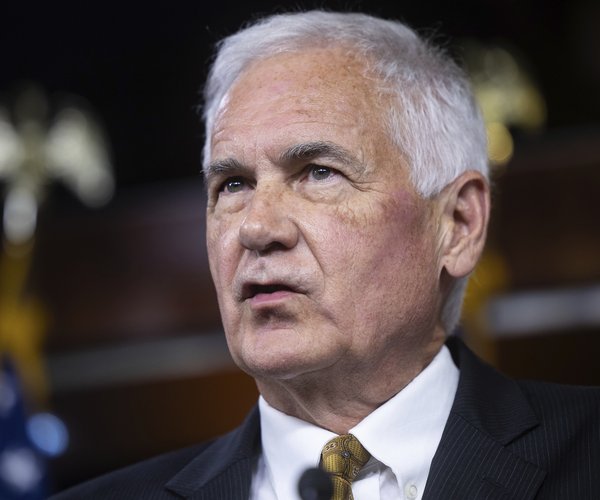Rep. John Duarte, R-Hughson, has joined a bipartisan coalition to introduce the Growing Access to Environmental Sustainability (GATES) Act to reduce barriers that producers face in accessing agricultural conservation programs.
For local farmers, this bill makes federal conservation programs more attainable by removing the adjusted gross income limit for the program, according to Duarte. Previously, farms making more than $900,000 per year in adjusted gross income would not qualify for conservation programs. That limit hits local farmers particularly hard because California has some of the highest adjusted gross income rates in the nation due to high land values and the production of high value crops, such as almonds.
“Efforts like the GATES Act will help increase participation in conservation programs while keeping federal funding associated with these programs directed at those who are on the ground working in and improving our agricultural communities,” said Duarte.
According to Duarte, the GATES Act would exempt the AGI limitation for farms that get 75 percent of their income from farming or related farming practices (agri-tourism, direct-to-consumer marketing of agricultural products, sale of agricultural equipment, and other agriculture-related activities, as determined by the Secretary of Agriculture). This would apply to the following conservation programs: the Conservation Reserve Program (pays farmers for removing environmentally sensitive land from production and planting species that will improve environmental quality), the Environmental Quality Incentives Program (provides financial and technical assistance to ag producers), and the Conservation Stewardship Program (helps farmers protect and improve the environment and natural resources on productive farms).
Current adjusted gross income limitations disproportionately limit those producers with high input costs from participating in certain USDA conservation-focused programs. Those limitations have not kept pace with inflation, according the coalition.
Co-leading this legislation are House Democrats Jim Costa (CA-21) Jimmy Panetta (CA-19), Yadira Caraveo (CO-08), David Rouzer (NC-07), Chuck Edwards (NC-11), and Lori Chavez-DeRemer (OR-5).
The GATES Act is endorsed by the Specialty Crop Farm Bill Alliance, Western Growers, and the California Farm Bureau.
Alvarado-Gil weighs in on Stephenson case
State Sen. Alvarado-Gil, D-Jackson, a co-author of the Sexually Violent Predator Accountability, Fairness, and Enforcement Act (SAFE Act), has weighed in on the case of William Stephenson, who in 1991 was sentenced to 31 years in prison on various charges, including violent sex acts.
After serving 18 years of his sentence, Stephenson was committed to the Department of State Hospitals in 2009. He was released in 2014, but was committed into the department’s custody again following his 2018 arrest in Placer County for having child pornography on his electronic devices, according to the El Dorado County District Attorney’s office.
In March, Amador County successfully defeated the placement of Stephenson within its community, citing concerns about public safety.
Despite the rejection in Amador County, the issue has risen again, with a new proposed placement in Placer County as a transient — a move that has triggered opposition from Alvarado-Gil and Placer County residents.
"The safety and well-being of our rural communities must be the top priority," said Alvarado-Gil. "I strongly urge the California Department of State Hospitals to conduct thorough due diligence in finding a safe and suitable placement for sexually violent predators.”
The location of Stephenson’s release will be addressed in a hearing on Sept. 1.





